[ad_1]
The slingshot is a cheap and versatile projectile launching platform. It is an accurate weapon in the right hands and, with practice, will yield small game (and even some medium game).
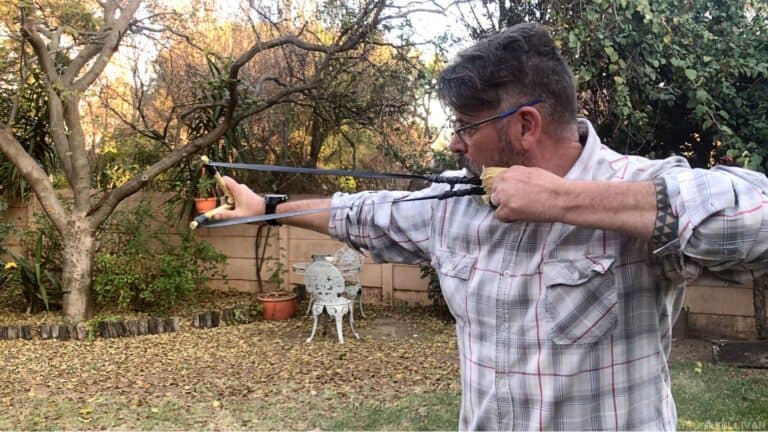
As a survival weapon it cannot be underestimated. It is light, easy to make and ammunition is plentiful, as simple as picking up a round river stone.
The watchword is practice. Practice regularly and consistently to develop muscle memory to make your shooting instinctive and natural.
Practice shooting with both eyes open, it is an instinctive way to shoot called point shooting, your eyes adjust in the same way you point your finger at an object, your aim precise and unerring.
Your stance is similar to holding and drawing a bow string, it will be side-on to allow for the rubber bands to be drawn to their maximum range to deliver the maximum amount of energy to your projectile.
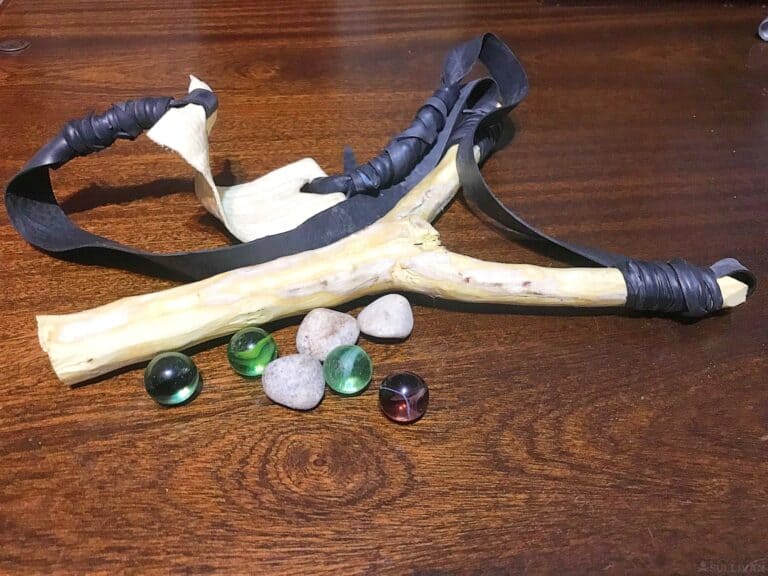
Slingshot Ammunition
Ammunition is versatile from rocks and stones to glass, clay, and steel balls. Don’t make them too big as they will be awkward to hold in the pocket and so will be inaccurate.
If your ammunition is too small it will not have enough weight to cause the damage required to an effective hunting projectile. A good size is 8 to 12 mm in circumference, and as round as possible.
Ammunition should be as aerodynamic as possible to have the least amount of resistance when you release the pocket.
Safety
Using any type of tool or weapon that has recoil or relies on tension to produce the energy required to propel a projectile has a handling risk factor.
The slingshot requires you to draw back the rubber bands and hold them under stress directly in front of your face, this is the point of risk.
When shooting the slingshot, you should wear protective glasses. Your main risks are:
- A perished rubber band snapping and recoiling into your face.
- A damaged load-bearing arm snapping and being drawn under tension back into your face.
- Firing your projectile down range and it striking a hard surface causes the projectile to ricochet back in your direction, striking you in the eye.
- Misfiring your slingshot by changing your hand, arm, or body position causing the projectile to strike your hand or finger.
Check your equipment and all fastenings regularly. Perform routine maintenance and store your slingshot in a dry place out of direct sunlight.
If the rubbers are damaged or perished replace them before you continue to shoot to avoid injury.
When practicing, shoot in an open space away from people and animals. Make sure the space behind your target is either clear or it has a backstop. A backstop is advised as it will collect fired ammunition that can be reused.
A slingshot can cause serious injury and/or death. Practice with these safety precautions in place and use a slingshot responsibly. Do not use indoors.
Technique
We have discussed the general fundamentals of shooting the slingshot, let’s take a look at the step-by-step methodology.
1. Take a firm grip on the bottom of the Y frame with your dominant hand.
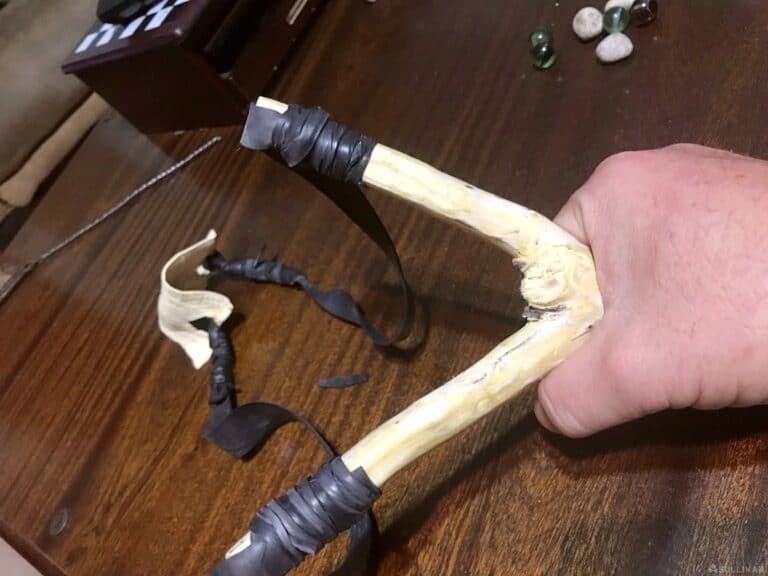
2. Support the frame by securing the load-bearing arms by curling your index finger and thumb around the arms.
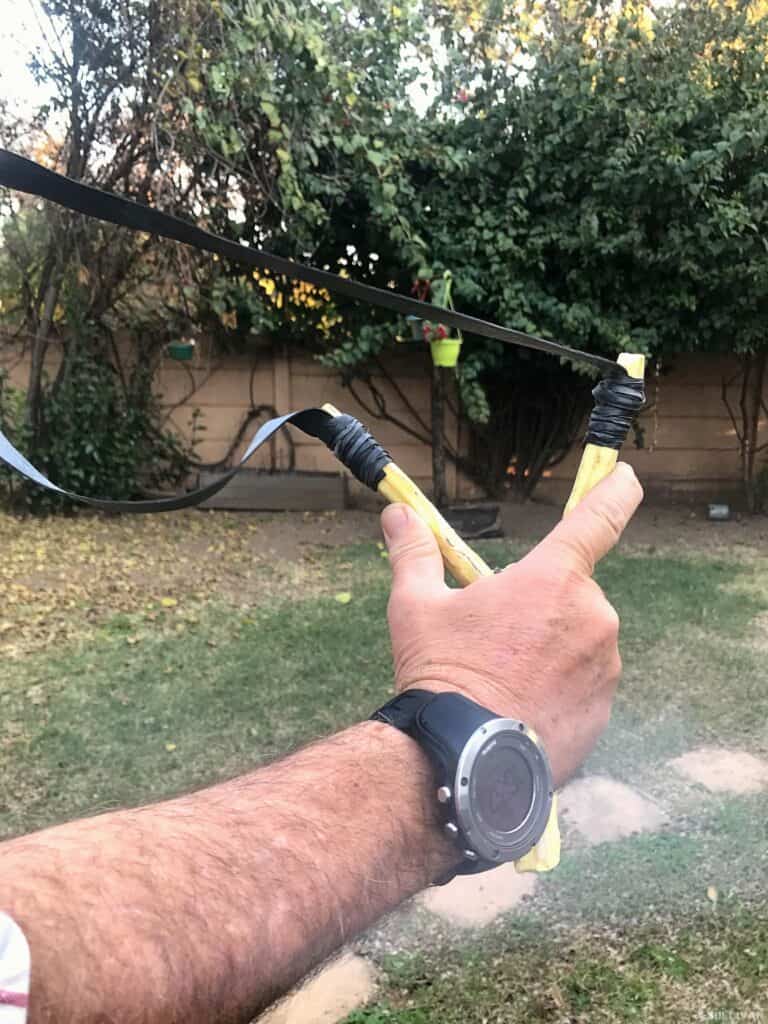
3. Place a stone or round projectile in the pocket. Secure the stone by pinching the pocket closed with the fingers of the non-dominant hand.
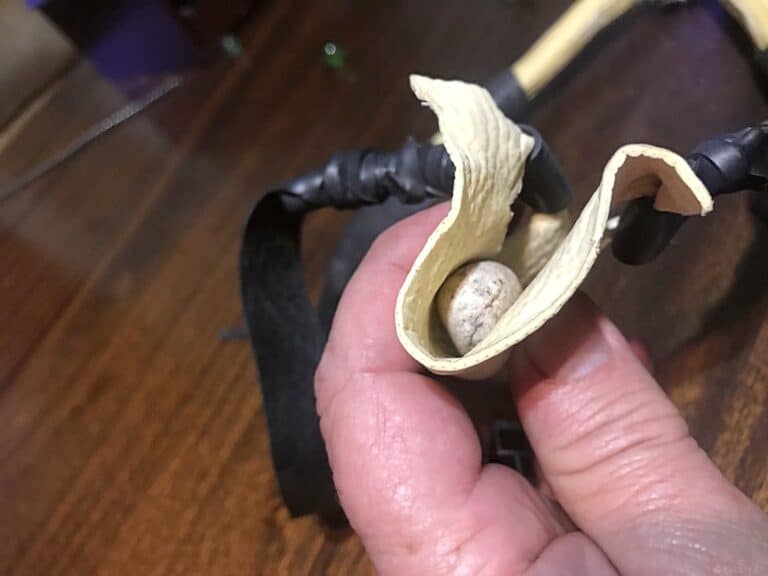
4. Looking at your target, lift the slingshot up and align with the target. Dominant hand forward, dominant foot forward. You may note this is opposite to the way a bow is drawn. Look throw the V of the Y, dominant eye aligning with the target.
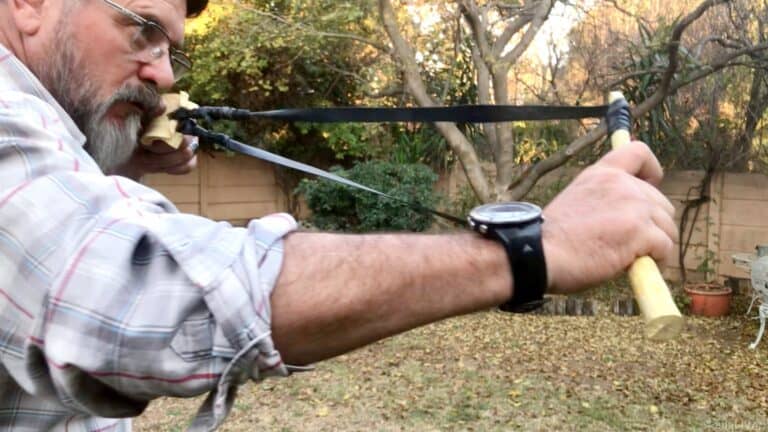
5. Find a sweet spot on your cheek or at a level with your eye, next to your temple to draw the patch to. (I recommend wearing a pair of safety glasses, in the event a rubber band breaks or your frame breaks).

6. Release the tab to send the stone down range propelled by the energy imparted to it by the rubber bands.
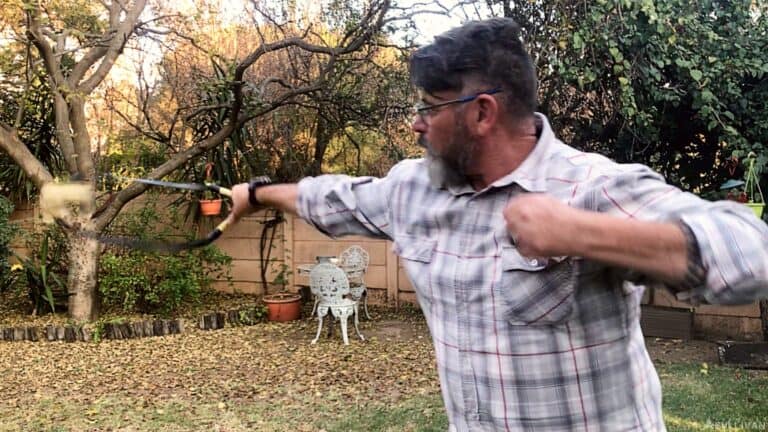
7. Let your arm swing away from your line of aim, this is called the follow-through. Follow through is important, it assists with the true flight of the projectile.
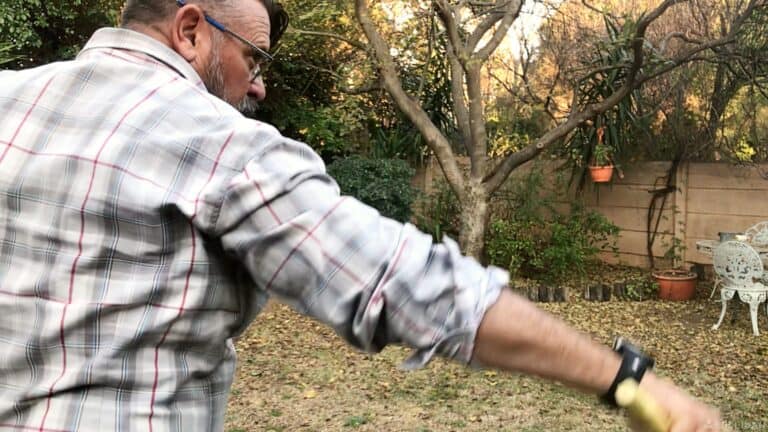
8. Keep your eye on the target especially small game and birds. Once hit, they will fall or if injured will make a dash into the underbrush. Watch where they come down so you can find your quarry.
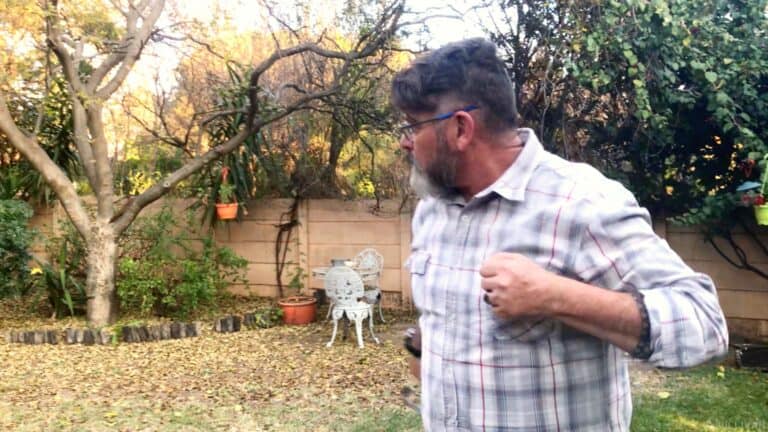
Final Thoughts
Practice, practice, and practice some more. Practice on small targets like empty soda cans or tin cans. Place them at different distances to train yourself to naturally recognize various distances in the field.
Practice shooting at stationary targets while you are moving, to simulate your walk in the bush. Practice at moving targets like a rolling soda can or a tennis ball. Then try shooting when you and your target are moving.
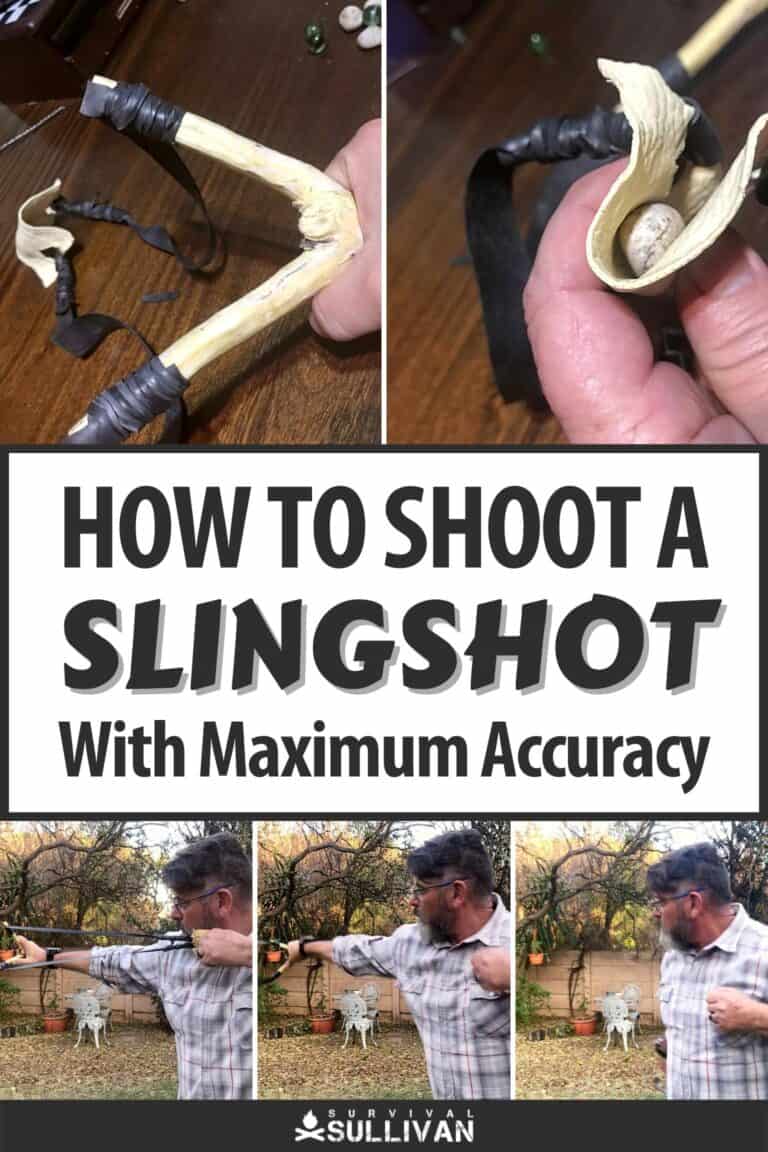
[ad_2]
Source link
Get more stuff like this
in your inbox
Don't Be Left Unprepared
Thank you for subscribing.
Something went wrong.






